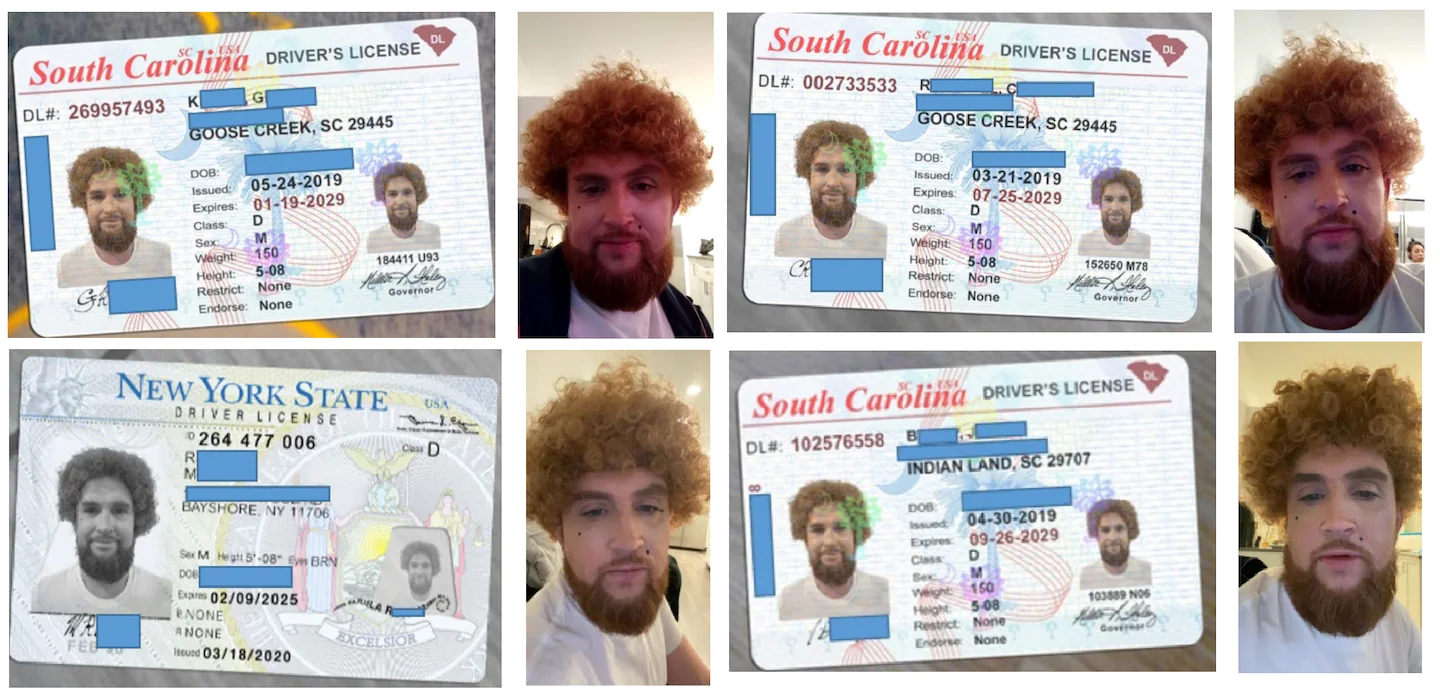
But despite the scale of the data gathering by the company, ID.me, revealed in newly released records, the system has been exploited by scammers. Federal prosecutors last month said a New Jersey man was able to verify fake driver’s licenses through an ID.me system in California as part of a $2.5 million unemployment-fraud scheme.
ID.me has pointed to the scam as an example of how well its systems work, noting that it referred the case to federal law enforcement after an internal investigation. But the criminal complaint in the case shows that ID.me’s identification systems did not detect bogus accounts created around the same day that included fake driver’s licenses with photos of the suspect’s face in a cartoonish curly wig.
An ID.me spokesman declined to explain how the suspect was able to win approval for fraudulent accounts and referred other questions to the Justice Department.
The company said in a statement that “the tactics of fraudsters are constantly evolving,” that it “uses extensive analytics and models to prevent identity theft” and that it is “continuously updating controls that protect against new and emerging fraudulent activity.”
The revelations raise new questions about the McLean, Va.-based contractor, which saw its business explode during the pandemic: 10 federal agencies, 30 states and more than 500 companies now pay ID.me to confirm the identities of Americans seeking services such as unemployment…







